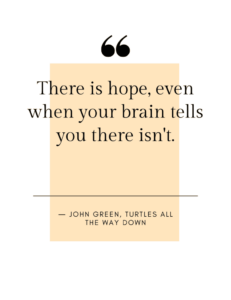《自律養生實踐家之旅388》 主動做的事

一生之中,人們總在「重要」與「緊急」之間奔忙。回望過往,我們做了太多本不需要做的事。那些被浪費的時間、錯置的焦點,總是人生深深的嘆息。
問題從來不是懶惰,而是不懂分辨什麼才是真正重要。等到重要的事突然成了緊急事項,才發現,時間已過、來不及了。
遇過許多知識分子坦承疫苗後遺症帶來的痛,我總提醒他們:讀書人應有讀書人的風範,每件事都要知道自己為何而做。
當初接種疫苗,你以為那是重要又緊急。事過境遷,真相浮現,你才明白那既不緊急,也未必重要。
若能倒回疫情那段時光,若能重新選擇,有多少人會主動不打疫苗?我不預測答案,我只知道覺悟會大幅上升。
把你做過的所有事攤開,誠實問自己:多少是被動?多少是主動?
如果你難以分辨,想像這個畫面:某一天你「開除」你的老闆,自由的在庭院與伴侶喝咖啡。經濟自由,時間自由,心自由,那時你會清楚看見,原來人生可以完全由自己主動選擇。
我曾思索:主動與健康有何關係?答案是:深刻且殘酷。
如果你晚年需要人攙扶、需要人擦拭身體、處理排泄,那不是意外、不是命,而是一輩子被動生活的結果。
被動,是把別人的價值當成自己的。是依賴外界指令活著,是讓自我消失,成為他人的附屬品。
長期如此,人會累。不是身體累,是靈魂疲憊。
什麼叫「被動的養生」?你以為不舒服時看醫生是主動?那其實是社會灌輸的反射,是一種訓練後的被動。
真正的養生不是生病後的緊急處理,而是生病前就已經開始主動照顧自己。
同樣的,為考試而讀書、為證照而努力、為被認可而活。那不是主動,那是被制度與眼光驅動的行為。
真正的主動,是願意承擔,是願意選擇與自己站在一起。
當我與人溝通時,常見相同問題反覆出現。為什麼?因為許多人大腦不是自己的,思想不是自己的,所有答案來自他人、社會、習慣、權威。
我們習慣熟悉的路,也習慣把責任交給別人。那就是為什麼「做自己」聽起來抽象、遙遠,因為很少人真的活過自己的人生。
你的選擇由誰掌控?你身邊的人是否尊重你的選擇?你的父母、伴侶是否支持你?生活中讓你窒息的人,是誰?
能否休半天假,決定權在你?還是在別人手上?如果連休息都需要被允許,那你的人生並不屬於你。
許多學員來到我面前,是因為對醫療徹底失望。醫療基於疾病,我基於覺醒。
我能做的,是指路。真正的選擇與承擔,必須由你完成。
治療不是從醫院開始,治療是身體此刻正在做的事。
不舒服不是問題,那是身體在修復。不舒服,是身體的主動;看醫生,是人的被動。
學會分辨主動與被動的那一天,你就會真正開始,與自己、與身體站在同一個陣線。
(還是有希望,即使你的大腦告訴你沒希望了。)
Acting by Choice
Throughout life, we rush between what feels “important” and what feels “urgent.”
Looking back, we realize we have done far too many things that didn’t need to be done at all.
Wasted time, misplaced focus—these become the deepest sighs of a lifetime.
The problem is not laziness; it is the inability to discern what truly matters.
By the time the important becomes urgent, we discover the clock has run out.
I have met many intellectuals who later confessed the pain of vaccine side effects.
I always remind them: A person who has studied should live like a person who has studied—
every decision should be grounded in clarity and reason.
At the time, receiving the vaccine felt both important and urgent.
But as time passed and truth surfaced, many realized it was neither urgent—
and perhaps not truly important.
If we could rewind the pandemic and choose again,
how many would choose not to take the vaccine?
I won’t predict the number,
but I know one thing: awakening would rise dramatically.
—
Lay out everything you’ve done in your life and ask honestly:
How much was passive? How much was chosen?
If you struggle to answer, imagine this—
one day, you “fire” your boss and sit calmly in your garden with your partner, having coffee.
Financial freedom, freedom of time, freedom of mind—
in that moment, you will clearly see how life looks
when you choose, instead of obeying.
I once pondered the link between autonomy and health.
The answer is profound—and ruthless:
If, in your old age, you need someone to hold you up,
to wipe your body, to handle your waste,
that is not fate nor misfortune—
it is the long-term consequence of living passively.
Passivity means adopting others’ values as your own.
It means living by external commands.
It means losing yourself and becoming an appendage of others.
Over time, you don’t just tire physically.
Your soul collapses.
—
What is “passive wellness”?
You believe going to the doctor when uncomfortable is proactive.
In truth, it is a social reflex, a conditioned form of passivity.
True wellness does not begin after illness appears.
It begins long before, with proactive self-care.
Studying for exams, pursuing certifications, working for approval—
these are not chosen actions;
they are responses to systems and spectators.
True agency is the willingness to take responsibility—
and to stand on your own side.
When I speak with people, I see the same questions repeated. Why?
Because their minds are not their own.
Their thoughts are not their own.
Their answers come from others—from society, from habit, from authority.
We follow familiar paths,
and we delegate responsibility because it feels safe.
That is why “being yourself” feels abstract, distant—
few have ever truly lived their own life.
—
So who controls your choices?
Do those around you respect your decisions?
Do your parents, your partner support them?
Who suffocates you in your daily life?
Can you decide to rest half a day?
Or must someone else permit it?
If rest requires permission, your life does not belong to you.
Many who come to me have lost faith in medicine.
Medicine responds to disease.
I respond to awakening.
I can point the path—
but you must walk it and bear your choices.
Healing does not begin in hospitals.
Healing is what your body is doing right now.
Discomfort is not a problem—
it is active repair.
Discomfort is the body’s choice;
going to the doctor is human passivity.
The day you learn to distinguish between the two—
between acting and reacting—
you finally begin to stand with yourself,
and with your body.


